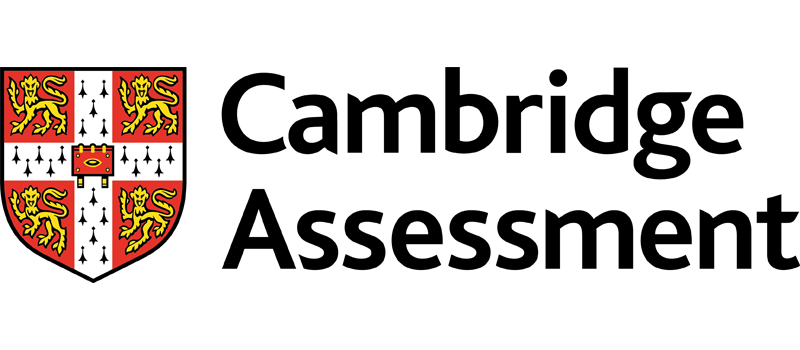
Contract Planning, Design, Administration and Dispute Management (CMC Workshops 3, 4) – Certificate Program
Course ID: 2510137101330EGI
Course Dates : 13/10/25 Course Duration : 5 Studying Day/s Course Location: Dubai, UAE
Language: Bilingual
Course Category: Professional and CPD Training Programs
Course Subcategories: Leadership and Management Excellence
Course Certified By: * Projacs Academy
* Professional Training and CPD Programs
Certification Will Be Issued From :
KSA
Course Fees: £2,946.08
Vat Not Included in the price. VAT may vary depending on the country where the course or workshop is held.
Click to Pay
Date has passed please contact us Sales@e-s-hub.com
Course Information
Introduction
In the realm of modern business operations, contracts serve as the backbone of organizational relationships, ensuring clarity, accountability, and mutual benefit. Whether it is a construction project, a technology partnership, or a service-level agreement, contracts are indispensable tools for managing expectations and mitigating risks. However, the complexities inherent in contract planning, design, administration, and dispute resolution often pose significant challenges to even seasoned professionals. This course addresses these intricacies by equipping participants with the knowledge and skills required to navigate the lifecycle of a contract effectively.
One of the most pressing challenges in contract management is the gap between theoretical understanding and practical application. For instance, many organizations struggle with poorly drafted contracts that fail to anticipate potential disputes or compliance issues. A notable case study involves a multinational corporation that faced millions in penalties due to ambiguous clauses in its supply chain agreements. Such examples underscore the need for a structured approach to contract management, grounded in both legal principles and industry best practices. By bridging this gap, professionals can enhance their ability to create robust contracts that align with organizational goals.
The course draws on established frameworks such as the Project Management Body of Knowledge (PMBOK) and the International Contract Management Association’s standards to provide a comprehensive learning experience. These frameworks emphasize the importance of risk assessment, stakeholder communication, and performance monitoring throughout the contract lifecycle. Participants will also explore emerging trends, such as the use of artificial intelligence in contract analysis and blockchain for secure contract execution, which are reshaping the field.
Professionals who master the art of contract management gain a competitive edge in their careers while contributing significantly to their organizations. Effective contract planning ensures that resources are allocated efficiently, risks are minimized, and deliverables are achieved on time. Furthermore, organizations benefit from reduced litigation costs, improved vendor relationships, and enhanced compliance with regulatory requirements. For example, a government agency recently reported a 30% reduction in contractual disputes after implementing advanced contract administration practices learned through similar training programs.
This program also places a strong emphasis on dispute management, a critical yet often overlooked aspect of contract lifecycle management. Disputes, if not handled promptly and professionally, can escalate into costly legal battles that damage reputations and strain relationships. By exploring real-world scenarios, participants will learn how to identify early warning signs of disputes, employ negotiation techniques, and leverage alternative dispute resolution mechanisms such as mediation and arbitration. These skills are invaluable in maintaining the integrity of contractual agreements.
Ultimately, this course is designed to empower participants to become proficient in all facets of contract management, from inception to closure. It is tailored for professionals seeking to elevate their expertise and contribute meaningfully to their organizations. By combining theoretical insights with hands-on exercises, case studies, and interactive discussions, the program ensures that participants leave with actionable knowledge and confidence in their abilities.
Objectives
By attending this course, participants will be able to:
Analyze the key components of effective contract planning and design to ensure alignment with organizational objectives.
Evaluate risk factors associated with contract execution and propose mitigation strategies.
Design clear and enforceable contract clauses that comply with legal and regulatory standards.
Implement best practices in contract administration to monitor performance and ensure deliverables are met.
Apply negotiation and conflict resolution techniques to manage disputes efficiently and amicably.
Assess the impact of emerging technologies, such as AI and blockchain, on contract management processes.
Synthesize lessons learned from case studies to develop innovative solutions for complex contractual challenges.
Who Should Attend?
This course is ideal for:
Contract managers, procurement officers, and supply chain professionals responsible for drafting, negotiating, and administering contracts.
Legal advisors and compliance officers seeking to deepen their understanding of contract law and its practical applications.
Project managers and team leaders involved in overseeing projects governed by contractual agreements.
Consultants and entrepreneurs who require a solid foundation in contract management to support client engagements.
These groups will find the course valuable as it addresses the multifaceted nature of contract management, offering tools and techniques directly applicable to their roles. While prior exposure to contract-related tasks is beneficial, the course is structured to accommodate both intermediate learners and advanced practitioners looking to refine their expertise.
Training Method
• Pre-assessment
• Live group instruction
• Use of real-world examples, case studies and exercises
• Interactive participation and discussion
• Power point presentation, LCD and flip chart
• Group activities and tests
• Each participant receives a 7” Tablet containing a copy of the presentation, slides and handouts
• Post-assessment
Program Support
This program is supported by:
* Interactive discussions
* Role-play
* Case studies and highlight the techniques available to the participants.
Daily Agenda
The course agenda will be as follows:
• Technical Session 08.30-10.00 am
• Coffee Break 10.00-10.15 am
• Technical Session 10.15-12.15 noon
• Coffee Break 12.15-12.45 pm
• Technical Session 12.45-02.30 pm
• Course Ends 02.30 pm
Course Outlines
Fundamentals of Contract Planning
Overview of contract lifecycle management.
Key elements of effective contract planning.
Stakeholder identification and engagement strategies.
Introduction to risk assessment frameworks.
Day 2:
Principles of Contract Design
Drafting clear and enforceable contract clauses.
Incorporating compliance and regulatory requirements.
Addressing ambiguities and potential loopholes.
Case study: Lessons from high-profile contract failures.
Day 3:
Best Practices in Contract Administration
Monitoring contract performance using KPIs.
Ensuring timely delivery of milestones and deliverables.
Managing changes and amendments to contracts.
Tools and software for efficient contract tracking.
Day 4:
Dispute Management and Resolution
Identifying early warning signs of disputes.
Negotiation techniques for resolving conflicts.
Introduction to mediation and arbitration processes.
Role-playing exercise: Simulated dispute resolution scenario.
Day 5:
Emerging Trends and Future Directions
Impact of AI and machine learning on contract analytics.
Blockchain technology for secure contract execution.
Ethical considerations in contract management.
Action planning: Developing a personal roadmap for implementation.



















































